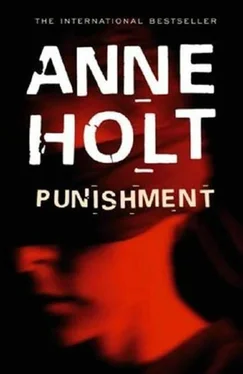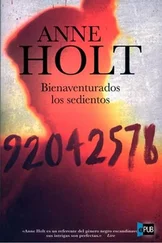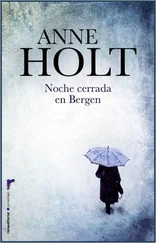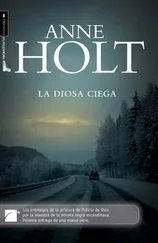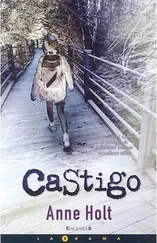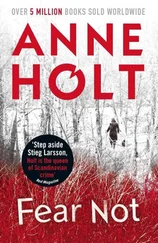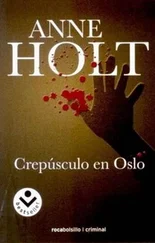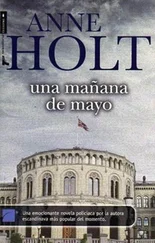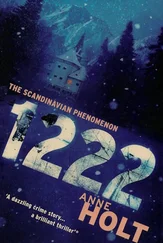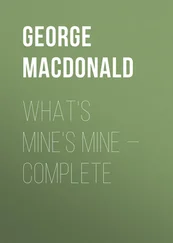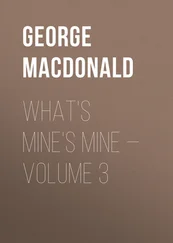
Anne Holt
Punishment aka What Is Mine
The first book in the Vik and Stubo series, 2006
Copyright © 2001 by Anne Holt
English translation copyright © 2006 by Kari Dickson
The ceiling was blue. The man in the shop claimed that the dark color would make the room seem smaller. He was wrong. Instead the ceiling was lifted; it nearly disappeared. That’s what I wanted myself, when I was little: a dark night sky with stars and a small crescent moon over the window. But Granny chose for me then. Granny and Mom, a boy’s room in yellow and white.
Happiness is something I can barely remember, like a light touch in a group of strangers, gone before you’ve had a chance to turn around. When the room was finished and it was only two days until he was going to come, I was satisfied. Happiness is a childish thing and I am, after all, thirty-four. But naturally I was happy. I was looking forward to it.
The room was ready. There was a little boy sitting on the moon. With blond hair, a fishing rod made from bamboo with string and a float and hook at the end: a star. A drop of gold had dribbled down toward the window, as if the heavens were melting.
My son was finally going to come.

She was walking home from school. It was nearly National Day. It would be the first 17th of May without Mommy. Her national costume was too short. Mommy had already let the hem down twice.
Last night, Emilie had been woken by a bad dream. Daddy was fast asleep; she could hear him snoring gently through the wall as she held her national costume up against her body. The red border had crept up to her knees. She was growing too fast. Daddy often said, “You’re growing as fast as a weed, honey.” Emilie stroked the woollen material with her hand and tried to shrink at the knees and neck. Grandma was in the habit of saying, “It’s not surprising the child is shooting up; Grete was always a beanpole.”
Emilie’s shoulders and thighs ached from being hunched the whole time. It was Mommy’s fault she was so tall. The red hem wouldn’t reach farther than her knees.
Maybe she could ask for a new dress.
Her schoolbag was heavy. She’d picked a bunch of coltsfoot. It was so big that Daddy would have to find a vase. The stalks were long, too, not like when she was little and only picked the flowers, which then had to bob around in an eggcup.
She didn’t like walking alone. But Marte and Silje had been collected by Marte’s mom. They didn’t say where they were going. They just waved at her through the rear window of the car.
The flowers needed water. Some had already started to wilt over her fingers. Emilie tried not to clutch the bunch too hard. A flower fell to the ground and she bent down to pick it up.
“Is your name Emilie?”
The man smiled. Emilie looked at him. There was no one else to be seen here on the small path between two busy roads, a track that cut ten minutes off the walk home. She mumbled incoherently and backed away.
“Emilie Selbu? That’s your name, isn’t it?”
Never talk to strangers. Never go with anyone you don’t know. Be polite to grown-ups.
“Yes,” she whispered, and tried to slip past.
Her shoe, her new sneaker with the pink stripes, sank into the mud and dead leaves. Emilie nearly lost her balance. The man caught her by the arm. Then he put something over her face.
An hour and a half later, Emilie Selbu was reported missing to the police.

I’ve never managed to let go of this case. Perhaps it’s my bad conscience. But then again. I was a newly qualified lawyer at a time when young mothers were expected to stay at home. There wasn’t much I could do or say.”
Her smile gave the impression that she wanted to be left alone. They’d been talking for nearly two hours. The woman in the bed gasped for breath and was obviously bothered by the strong sunlight. Her fingers clutched at the duvet cover.
“I’m only seventy,” she wheezed, “but I feel like an old woman. Please forgive me.”
Johanne Vik stood up and closed the curtains. She hesitated, not turning around.
“Better?” she asked after a while.
The old woman closed her eyes.
“I wrote everything down,” she said. “Three years ago. When I retired and thought I would have…”
She fluttered a thin hand.
“… plenty of time.”
Johanne Vik stared at the folder lying on the bedside table beside a pile of books. The old woman nodded weakly.
“Take it. There’s not much I can do now. I don’t even know if the man is still alive. If he is, he’d be… sixty-five. Or something like that.”
She closed her eyes again. Her head slipped slowly to one side. Her mouth opened a fraction and as Johanne bent down to pick up the red folder, she caught the smell of sick breath. She put the papers in her bag quietly and tiptoed toward the door.
“One last thing.”
She jumped and turned back toward the old woman.
“People ask how I can be so sure. Some think it’s just an idée fixe of an old woman who’s of no use to anyone anymore. I’ve done nothing about it for so many years… When you’ve read through it all, I would be grateful to know…”
She coughed weakly. Her eyes slid shut. There was silence.
“Know what?”
Johanne whispered, not sure if the old lady had fallen asleep.
“I know he was innocent. It would be good to know whether you agree.”
“But that’s not what I’m…”
The old woman slapped the edge of the bed lightly with her hand.
“I know what you do. You are not interested in whether he was guilty or innocent. But I am. In this particular case, I am. And I hope you will be too. When you have read everything. Promise me that? That you’ll come back?”
Johanne smiled lightly. It was actually nothing more than a noncommittal grimace.

Emilie had gone missing before. Never for long, though once-it must have been just after Grete died-he hadn’t found her for three hours. He looked everywhere. First he’d made some irritated phone calls to friends, to Grete’s sister who only lived ten minutes away and was Emilie’s favorite aunt, to her grandparents who hadn’t seen the child for days. He punched in new numbers as concern turned to fear; his fingers hit the wrong keys. Then he rushed around the neighborhood, in ever-increasing circles, his fear growing into panic, and he started to cry.
She was sitting in a tree writing a letter to Mommy, a letter with pictures that she was going to send to Heaven as a paper airplane. He plucked her carefully from the branch and sent the plane flying in an arc over a steep slope. It glided from side to side and then disappeared over the top of two birch trees that thereafter were known as the Road to Paradise. He did not let her out of his sight for two weeks. Not until the end of the holidays, when school forced him to let her go.
It was different this time.
He had never called the police before; her shorter and longer disappearing acts were no more than was to be expected. This was different. Panic hit him suddenly, like a wave. He didn’t know why, but when Emilie failed to come home when she should have, he ran toward the school, not even noticing that he lost a slipper halfway. Her schoolbag and a big bunch of coltsfoot were lying on the path between the two main roads, a shortcut that she never dared take on her own.
Читать дальше
